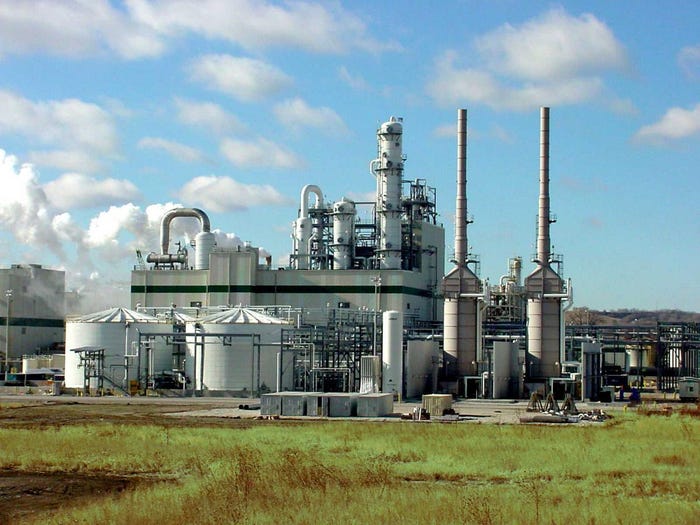In 2011, NatureWorks reported that it was working on process and capacity developments aimed at achieving the commercial production of the stereoisomer meso-lactide. The company confidently projected that by early 2013, it would be offering "thousands of tons of Ingeo M700 lactide." The big day finally arrived, as NatureWorks recently announced world scale availability of its new Ingeo M700, a high-purity, polymer-grade lactide rich in meso-lactide.
October 25, 2013
In 2011, NatureWorks reported that it was working on process and capacity developments aimed at achieving the commercial production of the stereoisomer meso-lactide. The company confidently projected that by early 2013, it would be offering "thousands of tons of Ingeo M700 lactide." The big day finally arrived, as NatureWorks recently announced world scale availability of its new Ingeo M700, a high-purity, polymer-grade lactide rich in meso-lactide.
Ingeo M700 has been designed to "package and deliver performance and functionality all in one unique molecule," says the company. This is different than previous industry approaches, which have attempted to deliver the functionality requested by the market with mixtures of two different materials, L-lactide and D-lactide.
 "Compared to those lactides, Ingeo M700 is a next generation solution in terms of processing efficiency, cost effectiveness and, in a number of applications, higher end-product performance," said Dr. Manuel Natal, global segment leader for lactide derivatives at NatureWorks.
"Compared to those lactides, Ingeo M700 is a next generation solution in terms of processing efficiency, cost effectiveness and, in a number of applications, higher end-product performance," said Dr. Manuel Natal, global segment leader for lactide derivatives at NatureWorks.
According to the company, Ingeo M700 lactide can be used as an intermediate for copolymers, amorphous resins, grafted substrates, resin additives and modifiers, adhesives, coatings, elastomers, printing toners, surfactants, thermosets and solvents.
The melting point of the meso-lactide is below 60°C, considerably lower than that of equimolar (racemic) combinations of L-lactide and D-lactide, and that of L- and D-lactides.
Providing a product with a lower melting point allows NatureWorks to supply processors with a more effective chemical intermediate on a number of different levels. For example, because of its lower processing temperatures, Ingeo M700 offers more energy efficient and generally easier manufacturing processes to deliver ester functionality and, because it is effectively an anhydrous form of lactic acid, processors will not have to deal with water when using Ingeo M700.
Ingeo M700 is up to two times more susceptible to ring-opening reactions than L-, D- or racemic lactides, which can mean less catalyst usage, lower reaction temperatures, faster reaction time and improved throughput. It can be processed below 80°C, which under most circumstances eliminates the need to handle expensive solid particles and allows easier processing.
About the Author(s)
You May Also Like


